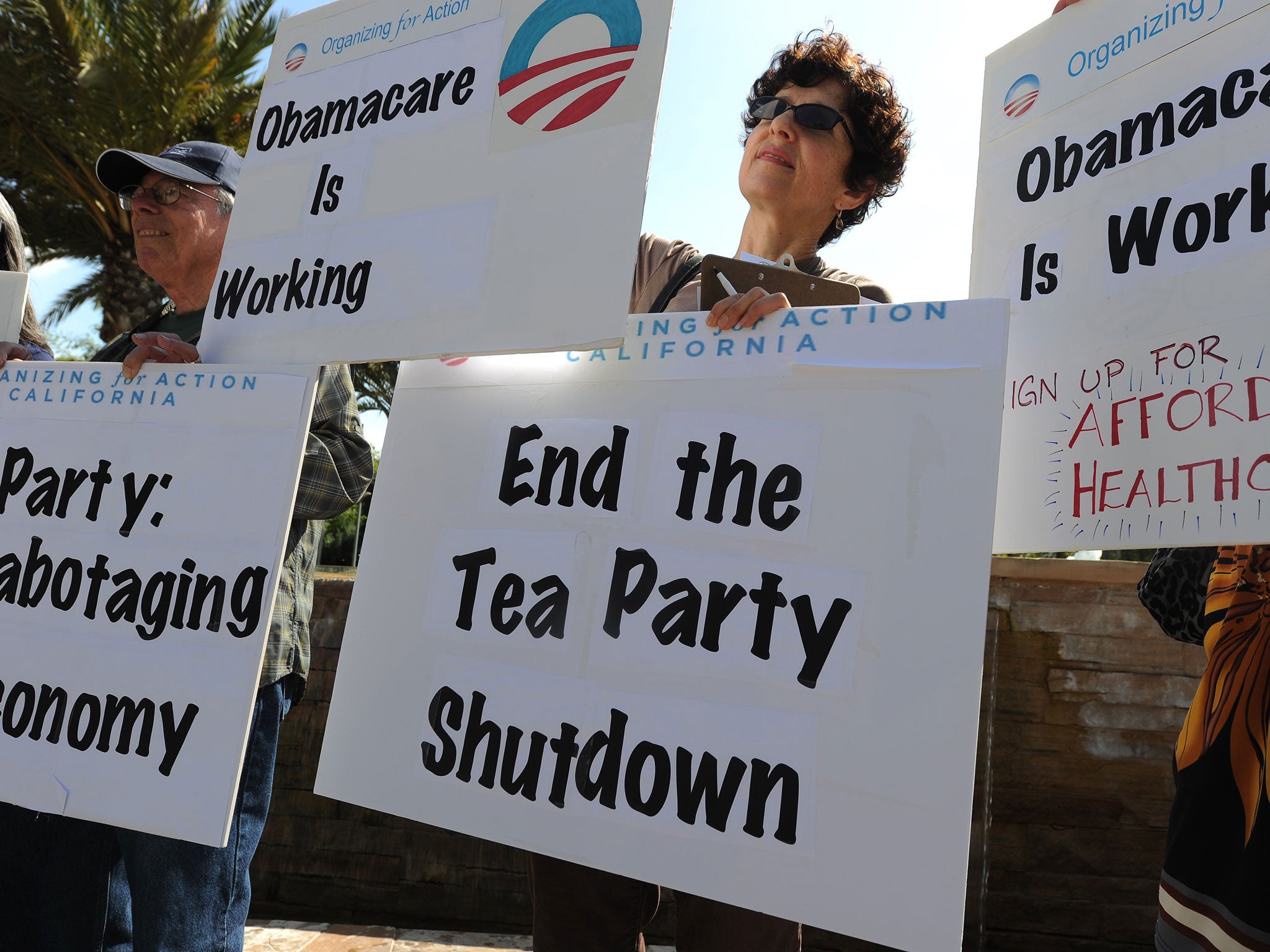Obama considers Republican deal to extend borrowing power and resolve shutdown
Some federal services to reopen as moderates appear to gain upper hand over Tea Party

All sides in Washington appeared to be stumbling towards a truce last night that would allow for a six-week extension of the US government’s borrowing authority and a resolution to the government shutdown, possibly ending a bitter stand-off that had threatened to see a first-ever default by America on its debt.
Final details of a new plan, cobbled together overnight by House of Representatives Republicans, were said to be under consideration by President Barack Obama. As part of the deal he would agree to begin negotiations almost at once on a broader set of measures to help address the country’s deficit and spending problems.
Meanwhile there was some relief on two fronts yesterday from the effects of the now 11-day federal shutdown: Mr Obama signed an ad hoc measure approved by both chambers on Thursday to restore benefits to families of soldiers killed in combat in Afghanistan; and the White House gave consent to state governments to reopen national parks using state funds.
The log-jam began to loosen on Thursday when John Boehner, the House Speaker, unveiled a plan to lift the debt ceiling for six weeks. That failed to win initial support from Mr Obama, however, because it did not address the shutdown, the effects of which have been gradually spreading. But it now seems likely that two bills addressing both issues will soon be put to votes in the House and Senate.
After days of paralysis on Capitol Hill, it seemed that moderate Republican voices in both chambers had begun to prevail against the right wing Tea Party flank which had been determined to extract maximum concessions from Mr Obama, including trying to delay or remove finding for his signature healthcare reforms.
Mitch McConnell, the minority Republican leader in the Senate, said yesterday: “Let’s put this hysterical talk of default behind us and instead start talking about finding solutions to the problems”, before leading a delegation of top Republican senators to the White House for talks with Mr Obama.
Five national parks in Utah are set to reopen to the public today, after state governor Gary Herbert signed a deal late on Thursday authorising the use of state money to run them pending an end to the shutdown. The governors of Arizona, home of the Grand Canyon, and Colorado were looking to follow suit.
Among all the interruptions to normal service caused by the shutdown none had caused more national outrage than the inability of the Pentagon to pay the usual benefit of $100,000 to families of soldiers killed in combat. While a charity, the Fisher House Foundation, had stepped in to provide the necessary funds, Congress and the White House agreed on special legislation ensuring that federal funds for the benefits were restored. It was signed by Mr Obama on Thursday.
In finally approaching deals on both the debt ceiling and budget issues, it appeared that conservative Republicans had given most ground, with public opinion swinging against them. A survey for the Wall Street Journal and NBC News found that 53 per cent of the public blamed the Republicans for the stand-off while only 31 per cent thought the president was the problem. Meanwhile 70 per cent of respondents said the Republican Party was putting ideology ahead of the country.
Nonetheless the talks that Mr Obama is now committing himself to will doubtless go over many of the same issues that caused the breakdown in government in the first place. There is unlikely to be serious discussion of a repeal of the healthcare reforms, known as Obamacare, as some conservatives were demanding, but elements of the new law, including a tax on medical devices, may now be on the table.
Join our commenting forum
Join thought-provoking conversations, follow other Independent readers and see their replies
Comments